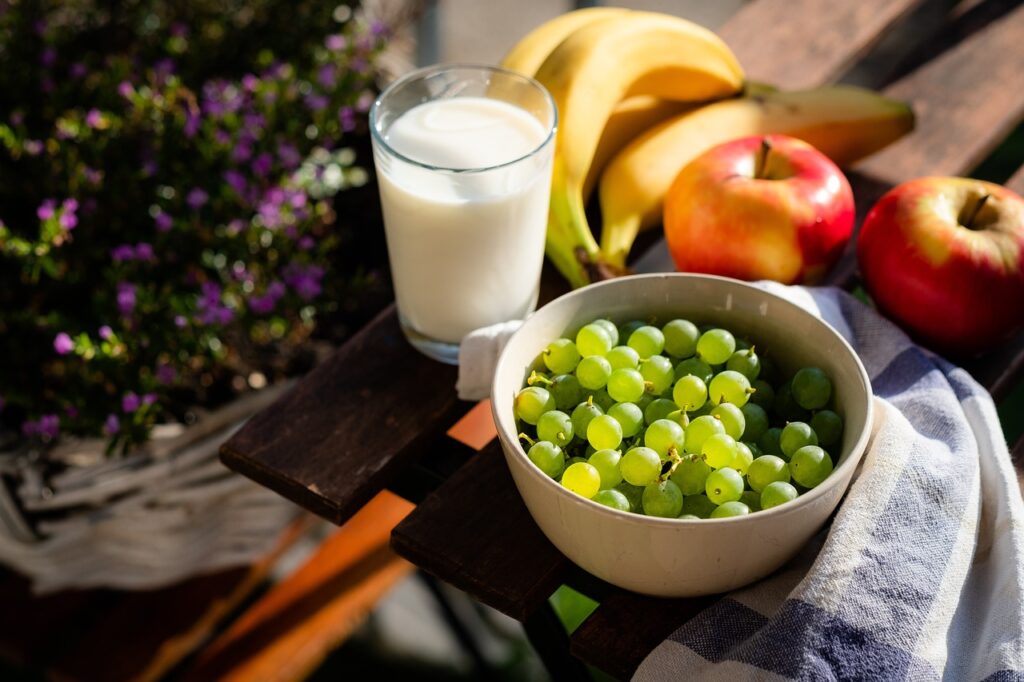When it comes to living a healthy lifestyle, two trends have taken the world by storm: plant-based diets and alcohol consumption. While the benefits of a plant-based diet are widely recognized, what happens when you mix that with alcohol? Spoiler alert: they don’t get along too well. In this article, we will explore why alcohol and plant-based diets are not a match made in heaven. Whether you’re someone trying to live a cleaner, greener lifestyle or simply curious about the impact of alcohol on your body while on a plant-based diet, read on to learn why these two shouldn’t be combined.

1. Introduction: Alcohol and Plant-Based Diets
Let’s start by painting a picture. Imagine your body as a finely tuned machine, running on clean, plant-based fuel. You feel lighter, more energetic, and in control. But what happens when you throw alcohol into the mix? Think of it like pouring sugar into the gas tank of a car – not exactly a good idea, right? Alcohol can disrupt the very benefits you seek from a plant-based diet, from nutrient absorption to energy levels. In this article, we’ll dive into the reasons why alcohol and plant-based diets simply don’t mix.
2. What Is a Plant-Based Diet?

Before we dive into the negative effects of alcohol, let’s define what a plant-based diet entails. A plant-based diet focuses on whole, minimally processed foods that come from plants, such as fruits, vegetables, grains, nuts, and seeds. This diet minimizes or eliminates animal products and prioritizes foods rich in fiber, vitamins, and antioxidants. The goal? Improved health, reduced risk of chronic diseases, and a positive impact on the environment.
3. How Alcohol Affects Your Body

Alcohol doesn’t just cause a buzz; it affects nearly every system in your body. When consumed, alcohol is quickly absorbed into the bloodstream and makes its way to the liver, where it’s broken down. This process releases toxins that the liver must detoxify. The liver is already working hard to process the nutrients from your plant-based diet. By adding alcohol into the mix, you’re giving your liver double duty. And while the occasional drink may seem harmless, repeated exposure can impair your liver’s ability to function efficiently, affecting your overall health.
4. Alcohol’s Impact on Nutrient Absorption
One of the biggest drawbacks of alcohol consumption on a plant-based diet is how it affects nutrient absorption. Alcohol interferes with the digestive system, making it harder for your body to absorb essential nutrients like B-vitamins, calcium, and zinc – all of which are already limited in plant-based diets. Regular alcohol consumption can lead to nutrient deficiencies that may result in fatigue, weak bones, and a weakened immune system. In other words, you’re undoing the hard work that comes with eating healthy plant-based foods.
5. The Liver’s Role: Detox and Diet
Your liver is the detox powerhouse of your body, responsible for filtering toxins from alcohol and processing nutrients from your diet. However, alcohol places significant strain on the liver, diverting it from its primary role of nutrient processing. Over time, excessive alcohol use can lead to liver diseases like fatty liver, cirrhosis, and even liver failure. For those on a plant-based diet, this not only hampers your body’s ability to detoxify but also undermines your nutritional goals.
6. Inflammation: Alcohol and Plants Don’t Mix
If you’re eating plant-based to reduce inflammation, alcohol is one of the worst things you can consume. Alcohol has been shown to increase inflammation in the body by disrupting the balance of gut bacteria, leading to a condition known as “leaky gut.” This means toxins can enter the bloodstream more easily, contributing to chronic inflammation, which is a key player in many diseases. The anti-inflammatory properties of plant-based foods can’t compete with the inflammatory effects of alcohol, making them an incompatible pair.
7. Gut Health: A Delicate Balance
Your gut is home to trillions of bacteria that play a crucial role in your digestion and overall health. Plant-based diets are excellent for promoting a healthy gut microbiome, thanks to their fiber content. Alcohol, on the other hand, can wipe out beneficial bacteria and promote the growth of harmful strains. This imbalance can lead to digestive issues, weakened immunity, and even mental health problems. Simply put, alcohol throws off the delicate balance in your gut that a plant-based diet works hard to maintain.
8. Weight Management and Alcohol
While plant-based diets are often linked to weight loss and improved metabolism, alcohol can undo these benefits. Alcohol is high in empty calories, meaning it provides energy without any nutrients. When you drink, your body prioritizes burning alcohol for energy, leaving fats and carbohydrates to be stored as fat. Even if you’re eating healthy plant-based foods, consuming alcohol can lead to weight gain and slow down your metabolism.
9. Vitamins, Minerals, and Alcohol Depletion
Plant-based diets can sometimes be low in certain vitamins and minerals like vitamin B12, iron, and calcium. Alcohol exacerbates this problem by interfering with the absorption of these essential nutrients. Regular alcohol consumption can deplete your body of these vital vitamins and minerals, leading to deficiencies that cause fatigue, bone weakness, and cognitive issues. It’s like watering a plant while punching holes in its pot – you won’t get the full benefits of your efforts.
10. Social Drinking: The Plant-Based Dilemma
Many people enjoy a glass of wine or a cocktail during social occasions. But if you’re following a plant-based diet, social drinking can be a challenge. Alcohol not only conflicts with the health benefits of your diet, but many alcoholic beverages are not vegan or plant-friendly. Some wines and beers use animal-derived ingredients like gelatin, casein, or isinglass in their production. Being aware of what you’re consuming is crucial if you want to stay aligned with your plant-based values.
11. Health Risks: Long-Term Consequences
Over time, combining alcohol with a plant-based diet can have long-term health consequences. Alcohol increases your risk of developing chronic conditions such as liver disease, heart disease, and even certain cancers. This contradicts the primary goal of a plant-based diet, which is to reduce these risks. Drinking alcohol on a regular basis may erase the protective effects that come with plant-based eating, making it a harmful combination in the long run.
12. Alcohol and Hydration
Plant-based diets typically emphasize hydration due to the high water content in fruits and vegetables. Alcohol, however, is a diuretic, meaning it increases urine production and leads to dehydration. Drinking alcohol while on a plant-based diet can disrupt your hydration levels, leading to dry skin, fatigue, and a slowed metabolism. Hydration is key to the success of any diet, and alcohol severely hampers this process.
13. Mindful Drinking on a Plant-Based Diet
Does this mean you can never drink alcohol on a plant-based diet? Not necessarily. Mindful drinking – reducing your intake and being aware of what you consume – can help you balance both. Opt for vegan-friendly alcohol options and limit your consumption to maintain the benefits of your plant-based lifestyle. Understanding how alcohol impacts your body can empower you to make smarter choices that align with your health goals.
14. Conclusion: The Smart Choice
Alcohol and plant-based diets are like oil and water – they simply don’t mix. While occasional drinking is a personal choice, understanding the impact alcohol has on your plant-based journey is crucial. By limiting or eliminating alcohol, you allow your plant-based diet to work at its full potential, giving you the best possible health outcomes. The smart choice? Prioritize your health and be mindful of how alcohol affects your well-being.
15. FAQs: Alcohol and Plant-Based Diets
1. Can I drink alcohol while on a plant-based diet?
Yes, but it’s important to consume alcohol in moderation and understand its impact on your health.
2. What types of alcohol are vegan-friendly?
Some wines and beers use animal products during processing, but many brands offer vegan-friendly options. Always check the labels.
3. Does alcohol affect my nutrient intake on a plant-based diet?
Yes, alcohol interferes with the absorption of essential nutrients, especially B-vitamins, calcium, and zinc.
4. Will alcohol cause weight gain on a plant-based diet?
Alcohol contains empty calories that can lead to weight gain, even on a plant-based diet.
5. How can I practice mindful drinking on a plant-based diet?
Opt for vegan alcohol, limit your intake, and stay hydrated to minimize the negative impact on your health.
